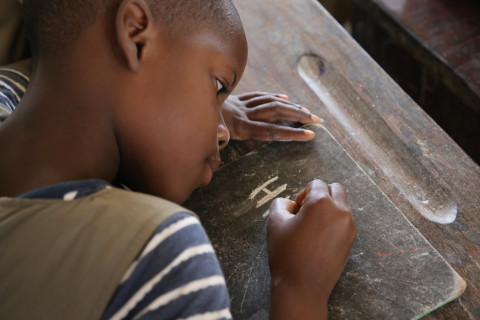
GCED Basic Search Form
Quick Search
You are here
News

We know that literacy is key to making our world more sustainable, peaceful, and financially secure.
Studies have shown that when children receive a quality education, they go on to have more chances in life, such as better health, greater employment opportunities, and increased participation in the political process. Furthermore, reading is considered the essential skill upon which the acquisition of every other skill depends.
Indeed, without the ability to read, especially in mother tongues, it would not be possible for people to gain the knowledge and skills that are critical to achieving the Sustainable Development Goals.
Over the years, GPE partner developing countries have made great progress in getting children enrolled in school and learning.
In Gambia, GPE is supporting the implementation and evaluation of early reading programs in national languages through teacher training, provision of supplementary readers and library books and regular monitoring using a classroom observation tool.
For example, in 2011 the government of Papua New Guinea launched the READ PNG program in collaboration with GPE and World Bank. This program helped promote better teaching and learning of reading skills in elementary and primary education.
Yet despite the progress being made, 1 in 4 children in low-income countries cannot read or write a basic sentence, and 102 million youth lack basic literacy skills, with women representing nearly two thirds of the world's illiterate.
This is why GPE supports strengthening education systems to improve how millions of children learn in close to 70 countries.
On this International Literacy Day 2019, we think about the millions of children and adults around the world who haven't been able to learn to read and write. GPE works to get all children in school and ensure that they do not stop learning.
We must continue to prioritize and fund education in order to keep our promise of 12 years of quality education for all children, allowing for a better and more prosperous future for all.
URL:
https://www.globalpartnership.org/blog/literacy-key-achieving-sdgs-2030
